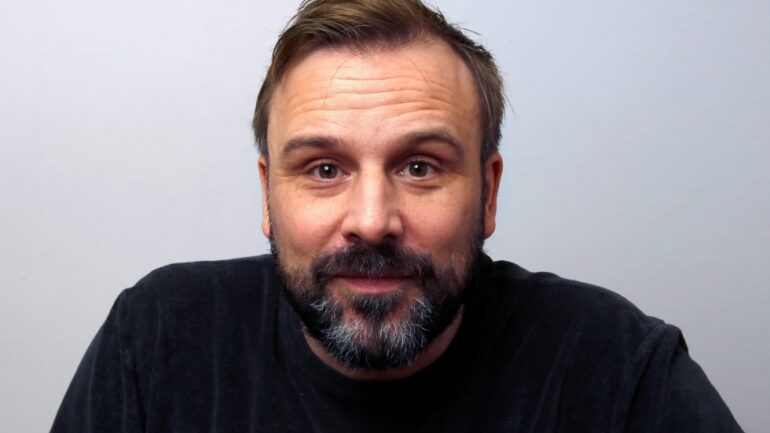WRITTEN BY: Annika Pham
When did you first have the idea for the film?
Rune Denstad Langlo. It’s hard to tell when I first had the idea as I actually studied Middle Eastern relations and I’ve always read more about international politics than film. That said, ten years ago, while I was making a film in a ‘reception’ centre in Northern Norway, I met a refugee who was an amazingly positive person. That triggered something in me. I thought how can a human being be so happy, although living in dreadful conditions, far away from his home and family? I started to dig into the subject and decided to make a satire about the dysfunctions of our political and social system.
It is very daring to make a comedy about the refugee crisis. Finding the right tone during the screenwriting process must have been quite challenging…
RDL: I wanted to make a character-driven comedy, totally opposite to a slapstick comedy. I believe that there is humor everywhere, even in the most absurd and tragic situations, and humor is a great tool to touch people’s hearts.
Today, Europe is in a state of panic as we are overwhelmed by the flow of refugees. My intention with the film is to tell people: relax! 20 years ago, we had many refugees from the Balkans and they are now well integrated in our society; you even have great role models like Zlatan!
The film has a great male duo in Primus (Anders Baasmo Christiansen) and the optimist Congolese refugee Abedi (Olivier Mukuta) that make up for a kind of Hollywood –style buddy movie. How did you come up with this double act?
RDL: Yes this is a classic comical device and Primus and Abedi were the two first characters I invented. The character of Primus was written specifically for Anders as I know him extremely well [Christiansen plays in North and Chasing the Wind]. However the original Abedi was different from the one in the film. When we found Olivier through a casting session, he told me about his story; how he grew up in a refugee camp and spent 11 years in a refugee camp in Malawi before coming to Norway. He is a good natured laid back guy, and very much himself in the film.
In Welcome to Norway Abedin is smarter than Primus. They don’t realize that they have become friends until the end. They just work together to solve problems.
How much research did you do about the way reception centres are run? Are the extras in the film real refugees?
RDL: I researched the rules and regulations needed to create a reception centre, from the collaboration with a local council, UDI [the Norwegian Directorate of Immigration], to language courses, praying rooms etc. In Norway opening a refugee centre can be a profitable business as you can get subsidies to care for refugees.
The extras in the film are all refugees, mostly from East Africa and Middle East. They all have gruesome life stories, so making a comedy about their situation was a nice experience for them.
Primus the main character is a doer, contrary to his wife who has humanitarian principles but actually stays rather passive. Is she another archetypal character?
RDL: She is like the Norwegian left, the Liberals, who feel good about donating NOK 100 to a child living at the other end of the world, but can’t handle reality and just read about the messed up situation in newspapers.
Scandinavians-especially Swedish people are politically correct and naive. They have been protected for centuries from the horrors of war. That’s not the case anymore.
How do you feel about the unwelcoming signals that governments in Denmark, Sweden and Norway are sending out to refugees to deter them from coming?
RDL: I don’t know. I’m not blaming anyone. But 200 years ago immigration was easier because there was no passport, everyone could travel and settle down where they wanted. My own grandfather emigrated to the US and stayed there for 20 years. He left Norway for the same reason that people from Eastern Africa leave now, to get a better life. It was much easier then. Today unfortunately there are borders and retrains. You need 100 papers to become a ‘citizen’.
What’s your next project?
RDL: I’ve worked three years on this project; it’s still a bit hard to let go, but I’m really proud of the film and I hope people will laugh, or at least smile. Otherwise I have many ideas for new projects, including a story about climate change.
